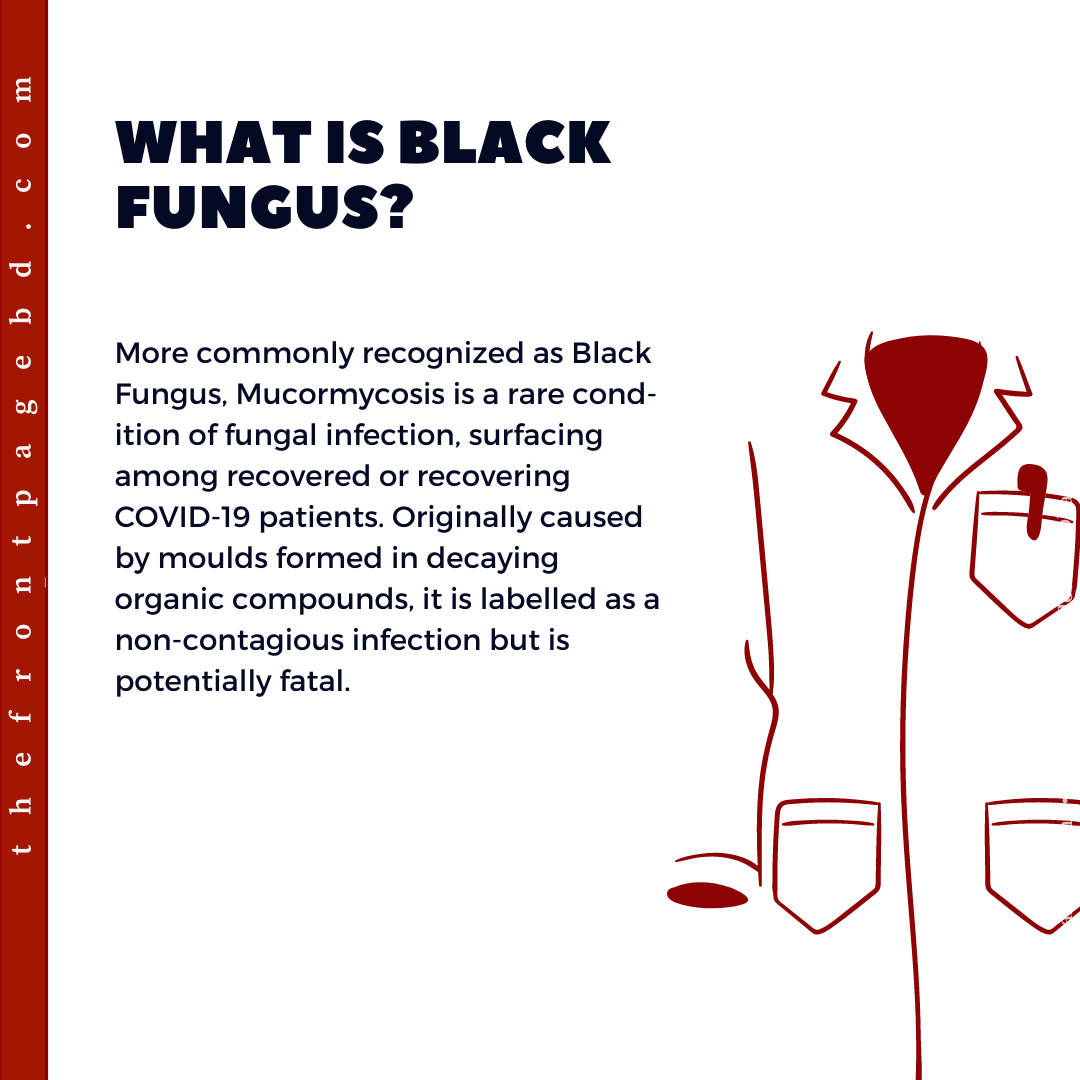What is Black Fungus?
More commonly recognized as Black Fungus, Mucormycosis is a rare condition of fungal infection, surfacing among recovered or recovering COVID-19 patients. Originally caused by moulds formed in decaying organic compounds, it is labelled as a non-contagious infection but is potentially fatal.
How does it spread?
The infection spreads from airways to body tissues, causing necrosis of skin cells (blackening). Coronavirus, Diabetes, poor immune system, liver or cardiac defects, excessive use of steroids amplifies chances of being infected. Dirty oxygen cylinders, humidifiers and unsanitary conditions contribute to the accelerated growth of the number of cases, experts say.
India is currently facing the worst phase of COVID-19 as the second wave circulated. The given circumstances of diabetic patients, unhygienic medical equipment and lower oxygen concentrations create an ideal habitat to be infected by the fatal disease. 900,000 cases of Black Fungus have been recorded in India, with an alarming 50% fatality rate.
Symptoms of Black fungus:
- Fever
- Blocked Nasal Pathway
- Blurry vision
- Coughing
- Skin discolouration and swelling
- Headache
- Shortness of breath
- Vomiting blood
- Pain and redness on the nose and eye area
Precautions against Black fungus:
- Maintaining blood sugar level
- Checking for any post-COVID recovery symptoms
- Refrain from wearing unhygienic masks
- Cleaning used humidifiers
- Continual clean air ventilation
Written by: Nazifa Tabassum
